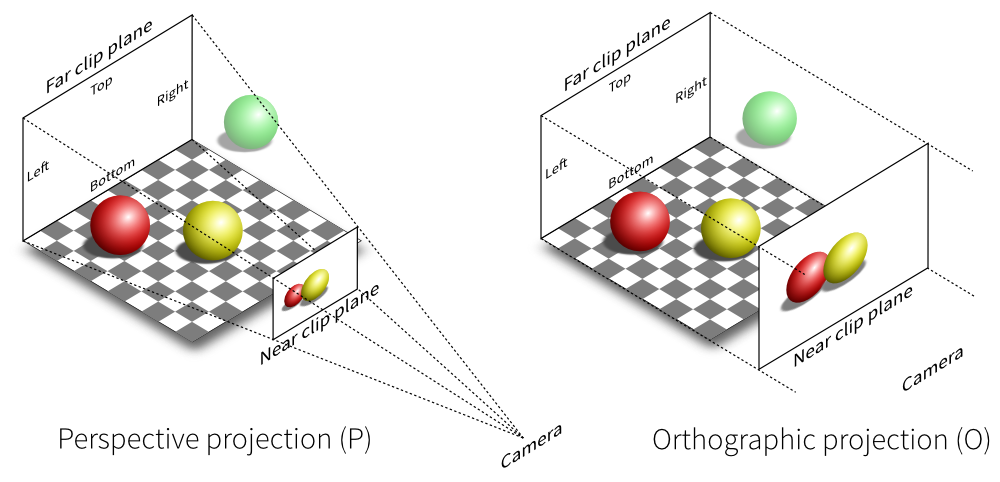$h_n = a_1h_{n - 1} + a_2h_{n - 2} + \cdots + a_kh_{n - k}$
求其第 $n$ 项。
矩阵乘法
显然直接用矩阵快速幂就可以做到 $O(k ^ 3 \log n)$ 的复杂度了。
特征多项式
对于这样的常系数齐次线性递推式,先构造递推矩阵
$$M = \begin{pmatrix}
a_1 & a_2 & a_3 & \cdots & a_{k - 2} & a_{k - 1} & a_k \\
1 & 0 & 0 & \cdots & 0 & 0 & 0 \\
0 & 1 & 0 & \cdots & 0 & 0 & 0 \\
0 & 0 & 1 & \cdots & 0 & 0 & 0 \\
\vdots & \vdots & \vdots & \ddots & \vdots & \vdots & \vdots \\
0 & 0 & 0 & \cdots & 1 & 0 & 0 \\
0 & 0& 0 & \cdots & 0 & 1 & 0
\end{pmatrix}_{\ k \times k}$$
初始值向量
$$X = \begin{pmatrix}h_{k - 1} \\
h_{k - 2} \\
h_{k - 3} \\
\vdots \\
h_2 \\
h_1 \\
h_0
\end{pmatrix}_{\ k \times 1}$$
则
$$Y = MX = \begin{pmatrix}
a_1 & a_2 & a_3 & \cdots & a_{k - 2} & a_{k - 1} & a_k \\
1 & 0 & 0 & \cdots & 0 & 0 & 0 \\
0 & 1 & 0 & \cdots & 0 & 0 & 0 \\
0 & 0 & 1 & \cdots & 0 & 0 & 0 \\
\vdots & \vdots & \vdots & \ddots & \vdots & \vdots & \vdots \\
0 & 0 & 0 & \cdots & 1 & 0 & 0 \\
0 & 0& 0 & \cdots & 0 & 1 & 0
\end{pmatrix} \begin{pmatrix}h_{k - 1} \\
h_{k - 2} \\
h_{k - 3} \\
\vdots \\
h_2 \\
h_1 \\
h_0
\end{pmatrix} = \begin{pmatrix}h_{k} \\
h_{k - 1} \\
h_{k - 2} \\
\vdots \\
h_3 \\
h_2 \\
h_1
\end{pmatrix}$$
考虑矩阵 $M$ 的特征多项式
$$f(\lambda) = |\lambda E - M| = \begin{pmatrix}
\lambda - a_1 & -a_2 & -a_3 & \cdots & -a_{k - 2} & -a_{k - 1} & -a_k \\
-1 & \lambda & 0 & \cdots & 0 & 0 & 0 \\
0 & -1 & \lambda & \cdots & 0 & 0 & 0 \\
0 & 0 & -1 & \cdots & 0 & 0 & 0 \\
\vdots & \vdots & \vdots & \ddots & \vdots & \vdots & \vdots \\
0 & 0 & 0 & \cdots & -1 & \lambda & 0 \\
0 & 0& 0 & \cdots & 0 & -1 & \lambda
\end{pmatrix}_{\ k \times k}$$
然后我们按照第一行展开,得
$$f(\lambda) = (\lambda - a_1)A_{11} + (-a_2)A_{12} + \cdots + (-a_k)A_{1n} = \lambda ^ k - a_1 \lambda ^ {k - 1} - a_2 \lambda ^ {k - 2} - \cdots - a_k$$
其中 $A_{1i}$ 为元素 $a_{1i}$ 的代数余子式,根据 Cayley-hamilton 定理,$f(\lambda)$ 是零化多项式,即 $f(M) = 0$。
故可以得到 $M ^ k$ 与 $E, M, \cdots, M ^ {k - 1}$ 的线性递推关系,$M ^ i$ 也可以用 $E, M, \cdots, M ^ {k - 1}$ 线性表示。
证明:
当 $0 \leq i \leq k - 1$ 时,结论显然成立。
当 $i = k$ 时,因为 $f(M) = 0$,即 $M ^ k = a_1 M ^ {k - 1} + a_2 M ^ {k - 2} + \cdots + a_k E$。
假设当 $i < k_0$ 时,结论成立,于是当 $i = k_0$ 时,取 $1 \leq j \leq i - 1$,则 $M ^ i = M ^ j M ^ {i - j}$,由于 $M ^ j, M ^ {i - j}$,都可以由 $E, M, M ^ 2, \cdots, M ^ {k - 1}$ 的线性组合得到,故 $M ^ i$ 由 $E, M, M ^ 2, \cdots, M ^ {2k - 2}$ 的线性组合得到,而 $f(M) = 0$,则 $M ^ i f(M) = 0$,展开可得
$$M ^ {i + k} = \sum_{j = 1} ^ k a_j M ^ {i + k - j}$$
即 $M ^ {i + k}$ 可以表示为 $M ^ i, M ^ {i + 1}, \cdots, m ^ {i + k - 1}$,我们反复利用此式并根据数学归纳法,结论成立。
上述的过程实质上就是一个多项式乘法,由于多项式乘法满足结合律,我们可以利用类似快速幂的思想在 $O(\log n)$ 次乘法完成,由于朴素的多项式乘法的复杂度为 $O(n ^ 2)$,故我们可以在 $O(k ^ 2 \log n)$ 求出常系数齐次线性递推式的第 $n$ 项,由于要对 $f(M)$ 取模,我们可以利用 FFT 优化多项式乘法以及多项式取模配合生成函数做到 $O(k \log k \log n)$ 的复杂度。
代码
BZOJ 4161
$O(k ^ 2 \log n)$
1
2
3
4
5
6
7
8
9
10
11
12
13
14
15
16
17
18
19
20
21
22
23
24
25
26
27
28
29
30
31
32
33
34
35
36
37
38
39
40
41
42
43
44
45
46
47
48
49
50
51
52
53
54
55
56
57
58
59
60
61
62
63
64
65
66
67
68
69
70
71
72
73
74
75
76
77
78
79
80
81
82
83
84
85
86
87
88
89
90
91
92
93
94
95
96
97
98
99
100
101
102
103
104
105
106
107
108
109
110
111
112
113
114
115
116
117
118
119
120
121
122
123
124
125
126
127
128
129
130
131
132
133
134
135
136
137
138
139
140
141
142
143
144
145
146
147
148
149
150
151
152
153
154
|
#include <bits/stdc++.h>
namespace IO {
inline char read() {
static const int IN_LEN = 1000000;
static char buf[IN_LEN], *s, *t;
s == t ? t = (s = buf) + fread(buf, 1, IN_LEN, stdin) : 0;
return s == t ? -1 : *s++;
}
template <typename T>
inline void read(T &x) {
static char c;
static bool iosig;
for (c = read(), iosig = false; !isdigit(c); c = read()) {
if (c == -1) return;
c == '-' ? iosig = true : 0;
}
for (x = 0; isdigit(c); c = read()) x = x * 10 + (c ^ '0');
iosig ? x = -x : 0;
}
inline void read(char &c) {
while (c = read(), isspace(c) && c != -1)
;
}
inline int read(char *buf) {
register int s = 0;
register char c;
while (c = read(), isspace(c) && c != -1)
;
if (c == -1) {
*buf = 0;
return -1;
}
do
buf[s++] = c;
while (c = read(), !isspace(c) && c != -1);
buf[s] = 0;
return s;
}
const int OUT_LEN = 1000000;
char obuf[OUT_LEN], *oh = obuf;
inline void print(char c) {
oh == obuf + OUT_LEN ? (fwrite(obuf, 1, OUT_LEN, stdout), oh = obuf) : 0;
*oh++ = c;
}
template <typename T>
inline void print(T x) {
static int buf[30], cnt;
if (x == 0) {
print('0');
} else {
x < 0 ? (print('-'), x = -x) : 0;
for (cnt = 0; x; x /= 10) buf[++cnt] = x % 10 | 48;
while (cnt) print((char)buf[cnt--]);
}
}
inline void flush() { fwrite(obuf, 1, oh - obuf, stdout); }
struct InputOutputStream {
template <typename T>
inline InputOutputStream &operator>>(T &x) {
read(x);
return *this;
}
template <typename T>
inline InputOutputStream &operator<<(const T &x) {
print(x);
return *this;
}
~InputOutputStream() { flush(); }
} io;
}
namespace {
using IO::io;
const int MAXN = 4005;
const int MOD = 1e9 + 7;
struct LinearRecursion {
#define long long long
int k, *a, b[MAXN + 1], c[MAXN + 1];
inline void mulMod(int *x, int *y) {
static int buc[MAXN + 1];
memset(buc, 0, sizeof(int) * (k << 1));
for (register int i = 0; i < k; i++)
for (register int j = 0; j < k; j++)
buc[i + j] = (buc[i + j] + (long)x[i] * y[j]) % MOD;
for (register int i = 2 * k - 2; i >= k; i--)
for (register int j = 1; j <= k; j++)
buc[i - j] = (buc[i - j] + (long)buc[i] * a[j]) % MOD;
memcpy(x, buc, sizeof(int) * k);
}
inline void pow(int *a, int b, int *ans) {
for (; b; b >>= 1, mulMod(a, a)) (b & 1) ? mulMod(ans, a) : (void)0;
}
inline int getLinearRecursion(const int n, const int k, int *a, int *h) {
this->k = k, this->a = a;
memset(c, 0, sizeof(int) * k);
memset(b, 0, sizeof(int) * k);
c[1] = 1, b[0] = 1;
pow(c, n, b);
register int ans = 0;
for (register int i = 0; i < k; i++)
ans = (ans + (long)b[i] * h[i]) % MOD;
return ans;
}
#undef long
};
struct Task {
int a[MAXN + 1], h[MAXN + 1];
LinearRecursion d;
inline void solve() {
register int n, k;
io >> n >> k;
for (register int i = 1; i <= k; i++)
io >> a[i], a[i] < 0 ? a[i] += MOD : 0;
for (register int i = 0; i < k; i++)
io >> h[i], h[i] < 0 ? h[i] += MOD : 0;
io << d.getLinearRecursion(n, k, a, h);
}
} task;
}
int main() {
task.solve();
return 0;
}
|



